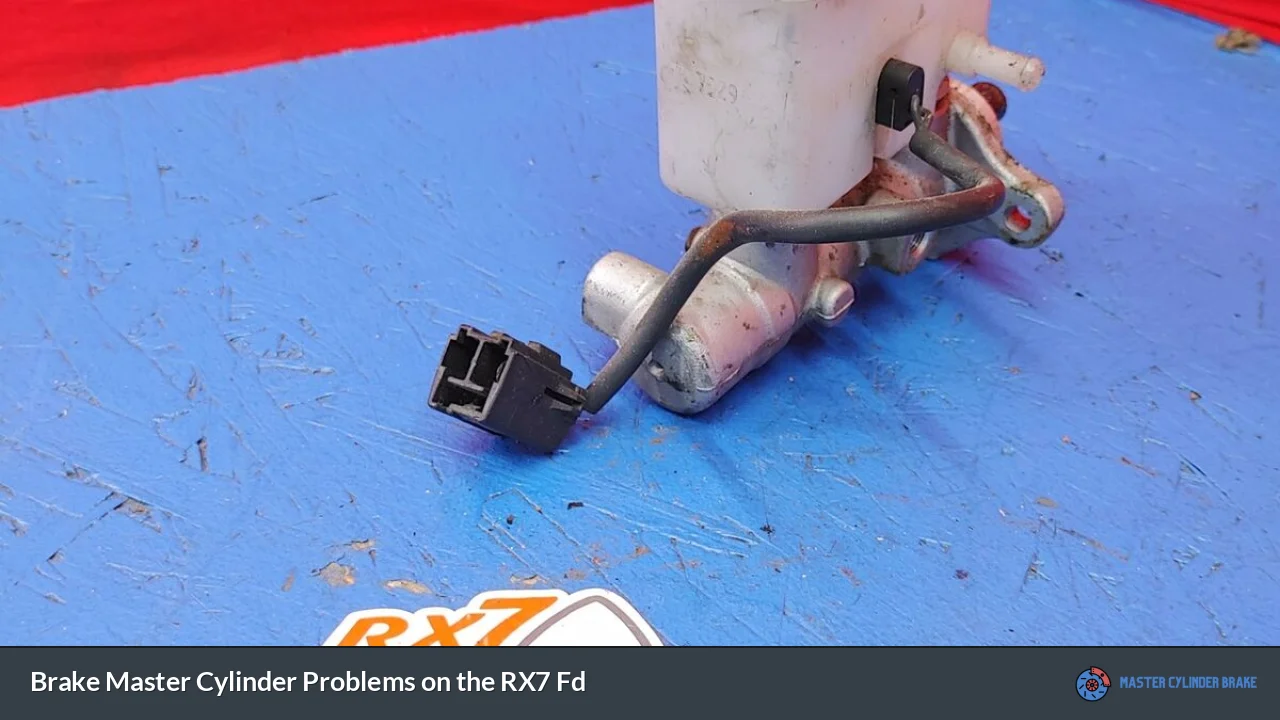A brake master cylinder is essential to your vehicle’s braking system. Without it, your brakes won’t function correctly and you could end up in a serious accident.
Brake master cylinders are composed of a piston and seal that pushes fluid into two hydraulic chambers, providing redundancy to prevent any single leak in one area from completely ruining the brake system.
Brake Pedal Feel
Many times, brake pedal feel that’s too soft can be due to an issue with the master cylinder. It is essential to understand that this component moves fluid from the calipers, so it needs to be appropriately sized for your pedal ratio.
Upgrading to larger calipers can often result in sloppy pedal feel due to an outdated master cylinder that cannot accommodate the extra fluid flow. A brake master cylinder upgrade can provide much needed relief here.
This modification is ideal for both track and road use, as TEGIWA’s brake stopper bolts directly to the master cylinder bulkhead and eliminates firewall flex under heavy braking, giving you a very positive brake pedal feel.
When pressing hard on the brakes, you want to experience this power as it gives you maximum stopping distance. If you have ever hit a hilly road with heavy foot traffic or had to brake quickly to avoid someone hitting you in the rear, then you know exactly what I’m talking about!
Brake Lines
The brake master cylinder is responsible for translating the force on the brake pedal into hydraulic pressure. This fluid pressure then travels through the caliper and rest of your car’s brake system, providing it with stopping power when required.
The master cylinder is an essential part of any car’s braking system and its performance depends on it. A malfunctioning master cylinder can result in loss of control over braking and even cause a crash.
One way to reduce this is to upgrade your master cylinder. This can be accomplished by installing a larger bore master cylinder.
However, it’s essential to use caution when altering your master cylinder. Negligent tools or techniques could easily damage either the caliper or master cylinder.
Therefore, you should only trust a brake shop to make and install these modifications for you. Additionally, replace the master cylinder fluid reservoir with one that can hold more brake fluid.
🎯Suggested article: The S10 Manual Brake Master Cylinder
Brake Fluid
Your RX7 brake fluid in the master cylinder plays an essential role in transmitting force from the pedal to your brake callipers. Therefore, it’s essential that this fluid remains at optimal performance levels.
There are several steps you can take to guarantee the fluid in your RX7 is fresh and clean. Start by opening the reservoir on your master cylinder; this will eliminate any dirt or debris that has built up there.
Next, you need to bleed your brakes and clutch. This process can be somewhat tricky, so ask someone for assistance if needed.
To complete the bleed process, you will need a clear tube to place in your bleed screw, an empty brake bottle, and the correct size wrench to tighten it. Begin bleeding from the front left brake, then move onto the rear right brake and repeat until each has been completed.
📢Read also: Upgrade Your Datsun 510 Brake Master Cylinder
Brake Bleeding
If your RX7 FWD is experiencing a spongy brake pedal feel when hitting the brakes, then this could be due to an issue with your master cylinder. To remedy this issue, make sure you properly bleeding out your brake system.
Once the master cylinder (MC) reservoir is full of brake fluid, get an assistant to step on the pedal and apply pressure. As soon as you hear drips (with bubbles), open bleeder screw just enough for fluid flow; close it before it stops flowing to prevent air from getting into brake lines.
Next, attach a hose to the bleed screw nipple and submerge it in brake fluid. As soon as the hose begins draining and you see clear, clean liquid come out, it is time to close the bleeder valve.
Each caliper in the line should be done individually, but it’s a relatively straightforward procedure. Furthermore, you get to enjoy all the benefits of new brake fluid – make sure it’s clean and free from contaminants.
